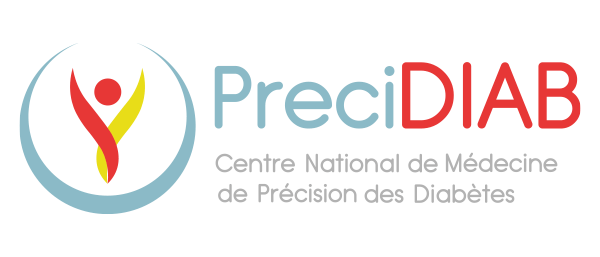Diabetes affects the brain, nerves, heart, kidneys, eyes, and many other organs.
 As part of our National Center PreciDIAB, a clinical study called Heart & Brain has started. Under the supervision of Pr. David Montaigne and Pr. Charlotte Cordonnier,
As part of our National Center PreciDIAB, a clinical study called Heart & Brain has started. Under the supervision of Pr. David Montaigne and Pr. Charlotte Cordonnier,
this study focuses on diabetic patients who have not yet had complications from diabetes. The objective is to understand why some patients will develop complications after a few years of follow-up by identifying biomarkers that will allow the prediction of disease trajectories that would occur prematurely in these patients. This study will then make it possible to develop prevention and protection strategies for these very important organs, the brain and the heart.
This is a clinical project that coordinates several professions within the Lille University Hospital, doctors specializing in cardiovascular imaging, radiologists as well as cardiologists and diabetologists. It is rare to have such a multidisciplinary approach, and this is one of the major strengths of this study.
Following the authorization of the Personal Protection Committee, in June we will welcome the first patient inclusions in this study.
Our healthcare professionals will finely and non-invasively explore how their brains and hearts work by comparing them to non-diabetic patients. For example, the exploration of the brain will consist of an assessment of cognitive functions (visual or verbal memory, language, writing, reading, arithmetic, attention, etc.) in parallel with an assessment of Brain morphology by brain MRI and its functioning by functional MRI. These observations will ultimately make it possible to identify the factors favoring cerebral complications in diabetic patients such as stroke or memory disorders. Thus, it will be possible to continue towards the second stage, which will be to determine new prevention strategies specific to these patients.
While making it possible to advance research, the benefit for these diabetic patients is to be able to carry out an exhaustive assessment at the cardiac, vascular and neurological level. Our patients will benefit from very close monitoring by specialist physicians from different departments of the Lille University Hospital, with original parameters that will make it possible to detect any complications.
The official start of this study with these first patient inclusions opens up promising prospects for people with diabetes in precision medicine in the near future.



